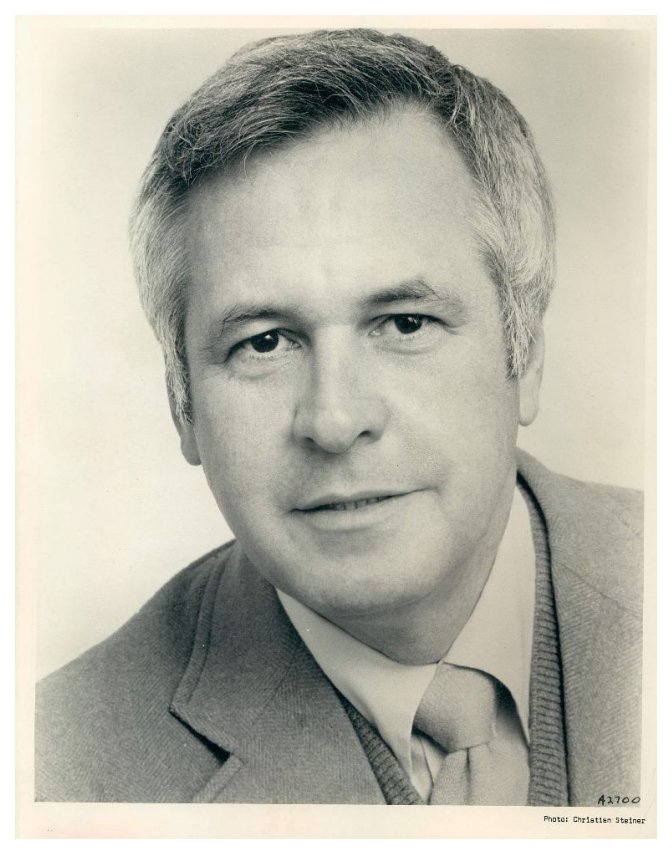

DONALD GRAMM IS DEAD AT 56; BASS-BARITONE AT
MET OPERA
By JOHN ROCKWELL Published: June 3, 1983 in The New York Times Donald Gramm, a distinguished, aristocratic American bass-baritone, died of a heart attack in his dermatologist's office yesterday morning in Manhattan. He was 56 years old. Mr. Gramm had completed a series of performances of Bellini's ''Norma'' with the Opera Company of Boston on Sunday, and was due to leave for California to begin rehearsals for Mozart's ''Cosi Fan Tutte'' with the San Francisco Opera. He had complained of chest pains last week, but had otherwise seemed in good health, his publicist said. His visit to the doctor yesterday was for a routine procedure, the publicist said. Mr. Gramm's career was unusual for an American singer because it was concentrated almost entirely in this country. His work was divided between opera and concert appearances. He sang regularly over the last three decades with the Metropolitan and New York City Operas, as well with opera companies, symphony orchestras and chamber series all over the country. His voice ranged from the lowest bass notes into the upper baritone reaches. He had an unusually rich, noble tone, and although its volume may not have been large, it penetrated even the biggest theaters easily. Technically, he could handle bel-canto ornamentation fluently. But his real strengths lay in his aristocratic musicianship (impeccable phrasing that he polished by accompanying himself at the piano, and an easy command of five languages) and his instinctive acting. Mr. Gramm's reviews were a litany of raves. In 1974, Harold C. Schonberg said in The New York Times that Mr. Gramm ''could not be faulted'' as Sancho Panza in a Boston staging of Massenet's ''Don Quichotte,'' and added that ''he never gives a bad performance.'' In 1977, Donal Henahan of The Times called Mr. Gramm ''the premiere American male singer of art songs, an important artist at his peak.'' Mr. Gramm was of German ancestry and was born in Milwaukee, Wis., on Feb. 26, 1927. He later changed his family name of Grambsch to Gramm. Between 1935 and 1944 he studied at the Wisconsin College-Conservatory of Music. His opera debut, at 17, was as Raimondo in Donizetti's ''Lucia di Lammermoor'' at Chicago's Eighth Street Theater. He continued his studies thereafter at the Chicago Musical College and later with Martial Singher at the Music Academy of the West in Santa Barbara, Calif. New York Debut in 1951 His New York debut came in 1951 in Berlioz's ''Enfance du Christ,'' with the Little Orchestra Society. [Note: The recording which was made later is shown below.] Following his City Opera debut as Colline in Puccini's ''Boheme'' in 1952, Mr. Gramm sang with the City Opera nearly every season for more than 30 years, and was scheduled to perform both the title role in Gilbert and Sullivan's ''Mikado'' and Papageno in Mozart's ''Magic Flute'' in August at the New York State Theater. 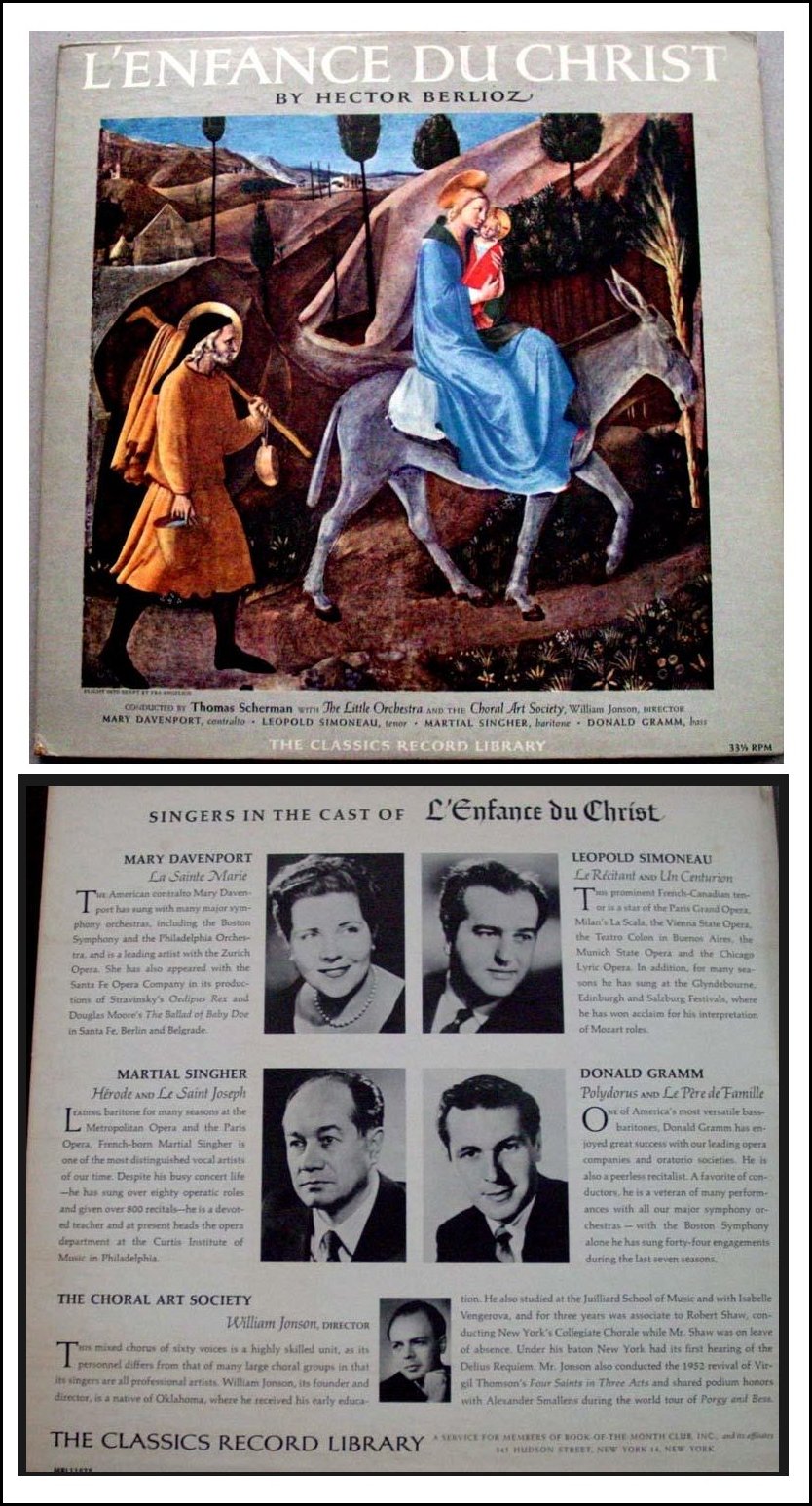
His City Opera roles ranged from the Count and Figaro in Mozart's ''Marriage of Figaro'' to Orlovsky in Johann Strauss's ''Fledermaus,'' Dandini in Rossini's ''Cenerentola,'' Bartolo in Rossini's ''Barber of Seville'' and the title role in Verdi's ''Falstaff.'' He made his debut at the Met on Jan. 10, 1964, as Truffaldino in Richard Strauss's ''Ariadne auf Naxos,'' and was for a while confined to similarly small parts there. His principal bases for major roles became Sarah Caldwell's Opera Company of Boston and John Crosby's Santa Fe Opera, where he often sang unusual or contemporary repertory. Eventually, he assumed major parts at the Met, as well, including the Doctor in Berg's ''Wozzeck,'' Papageno and Leporello in Mozart's "Magic Flute" and ''Don Giovanni'' and important roles in two recent new productions: Alfonso in ''Cosi'' and Waldner in Richard Strauss's ''Arabella'' last season. In Europe, he sang at festivals in Spoleto, Aix-en-Provence and Glyndebourne. His discography, which concentrated on the art song, was small for so critically acclaimed a singer, reflecting his limited European career. In 1981, he ventured into the realm of stage direction with ''The Marriage of Figaro'' at the Wolf Trap Farm Park in Virginia. Miss Caldwell remained his most stalwart champion. ''Donald's high level of musicianship and intelligence and his beautiful voice are attributes which make him the logical choice of a conductor,'' she told The Times in 1975. ''His remarkable ability for physical characterization and his deep interest in its development make him the logical choice of a stage director. This fusion of musical and dramatic abilities sets him apart as one of the most extraordinary singing actors of our time.'' Mr. Gramm is survived by his father, Rinold Grambsch of Waupaca, Wis., and a brother, Paul Grambsch of Minneapolis. -- Names which are links (both in this
box and below) refer to my interviews elsewhere on this website. BD
|
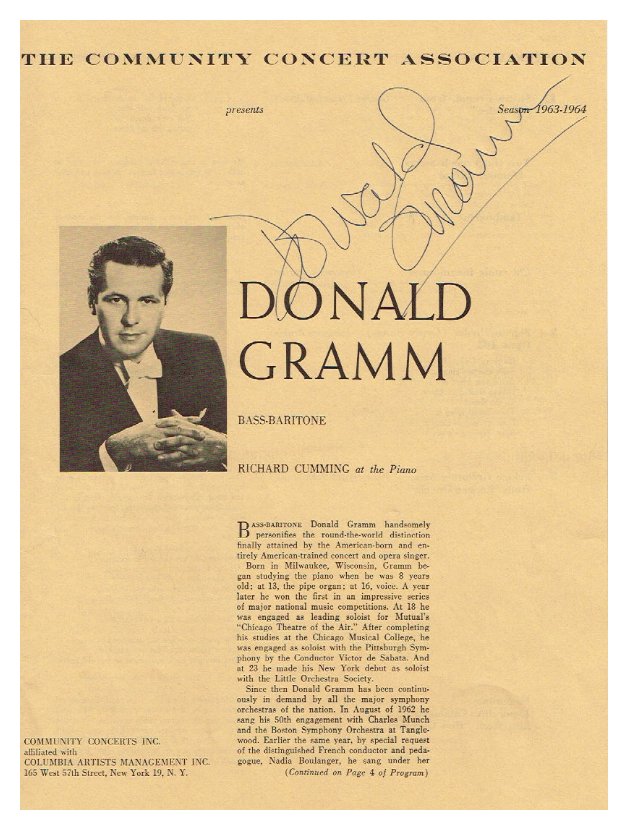
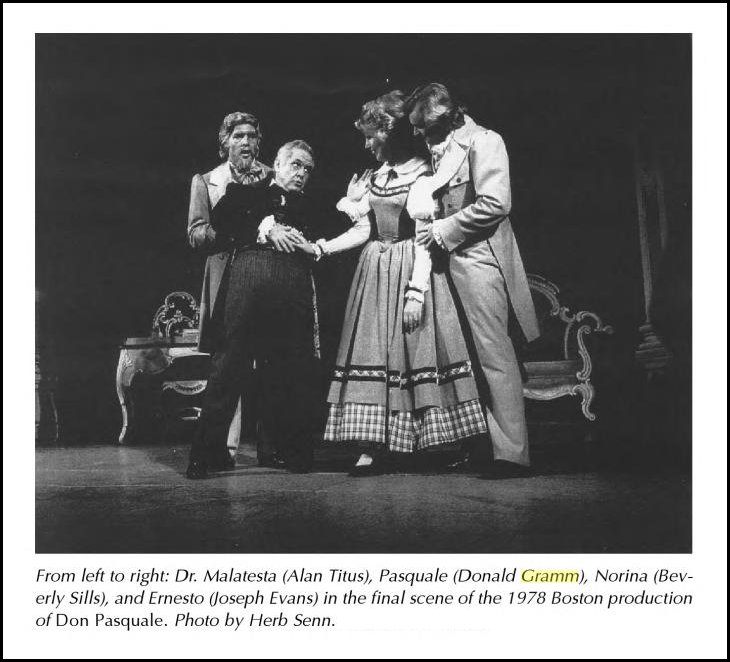 DG: [Duplicates the action, though his figure
is not nearly as rotund!] I’m not going too badly myself. I’ve
tried to do Dr. Bartolo, for example, fat and thin, and when he was thin
he was just an annoying dirty old man really, chasing after young girls.
Whereas when he’s fat he gets... [pauses]
DG: [Duplicates the action, though his figure
is not nearly as rotund!] I’m not going too badly myself. I’ve
tried to do Dr. Bartolo, for example, fat and thin, and when he was thin
he was just an annoying dirty old man really, chasing after young girls.
Whereas when he’s fat he gets... [pauses]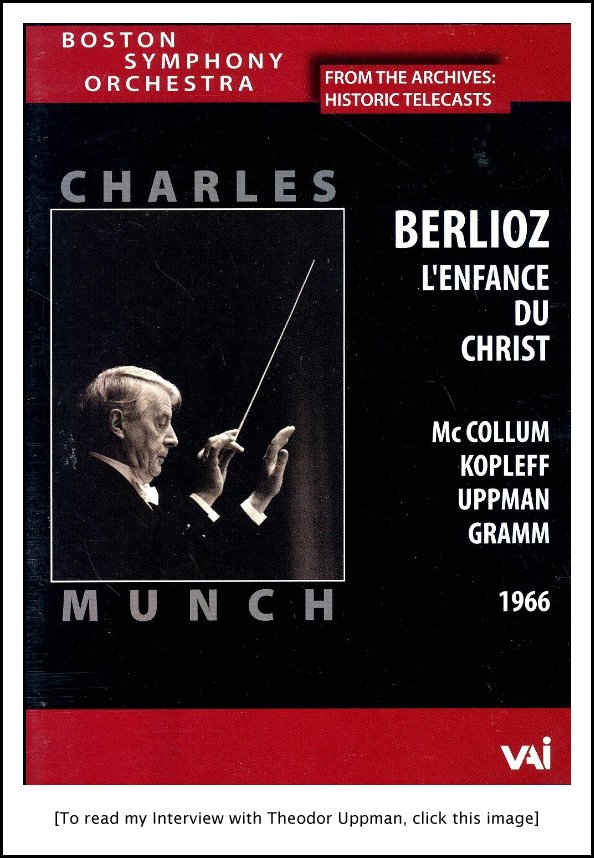 DG: Yes, that’s one Bartolo. You’re
thinking of the Barber Bartolo,
but the Marriage of Figaro Bartolo
is quite often a thin man. There is a story of Toscanini saying to
someone who wanted to sing the role of the Sacristan in Tosca, and he said, “No,
you’re too thin! You must be fat!” The
singer said, “But you know that the man Puccini wrote
it for was very tall and very thin!” and Toscanini
said, “Yes, too bad he wasn’t fat!”
[Both laugh] It just means that a type emerges and you feel it should
be done.
DG: Yes, that’s one Bartolo. You’re
thinking of the Barber Bartolo,
but the Marriage of Figaro Bartolo
is quite often a thin man. There is a story of Toscanini saying to
someone who wanted to sing the role of the Sacristan in Tosca, and he said, “No,
you’re too thin! You must be fat!” The
singer said, “But you know that the man Puccini wrote
it for was very tall and very thin!” and Toscanini
said, “Yes, too bad he wasn’t fat!”
[Both laugh] It just means that a type emerges and you feel it should
be done.Donald Gramm in Chicago
Lyric Opera 1954 - Taming of the Shrew [Giannini]
(Hortensio) with Jordan, Lind, Stewart, Thompson, Foldi;
Rescigno
1959 - Cenerentola (Dandini) with Rota, Monti, Corena, Callaway, Vozza; Gavazzeni 1968 - Oedipus Rex (Creon & Messenger) with Picchi, Dominguez, Washington; Fournet 1973 (Opening Night) - Maria Stuarda (Talbot) with Caballé/Hayashi, Cortez, Tagliavini, Ellis; Bartoletti - Manon (Count Des Grieux) with Zylis-Gara, Kraus, Patrick; Fournet 1981 - Don Quichotte (Sancho) with Ghiaurov, Valentini-Terrani, Gordon, Negrini, Cook; Fournet Chicago Symphony Orchestra
March, 1951 - Easter Oratorio (Bach) with Speaker,
Heckman, Nielsen; Kubelik; Chicago Musical College Chorus, Baar
April 1951 - Scenes from Tosca with Doree, Balsamo, Bartell; Schick January 1956 (!) - Mass in C Minor, K. 427 (Mozart) with Gueden, Tourel, Simoneau; Reiner; New York Concert Choir, Hillis December 1957 - Messiah with Addison, Oberlin, Lloyd, Reiner; Apollo Musical Club, Veld April 1961 [Performances and RCA recording] - Symphony #9 (Beethoven) with Curtin, Kopleff, McCollum; Reiner; Chicago Symphony Chorus, Hillis [Chicago Symphony Chorus appears as needed in all subsequent listings, except as noted] June, 1966 - Périchole (Offenbach) with Orantes, Uppman; Lewis April, 1971 - St. Matthew Passion (Bach) with Harper, Watts, Lewis, Krause; Solti November, 1971 [Chicago and Carnegie Hall] - Moses und Aron (Schoenberg) with Hotter, Lewis, Altman, Riegel; Solti January, 1973 - Theresienmesse (Haydn) & The Nightingale (Stravinsky) with Grist, Reynolds, Jennings, Killebrew; Camerata Singers; Boulez April and May, 1973 [Chicago and Carnegie Hall] - Götterdämmerung Act III with Dernesch, Thomas, Talvela, Altman; Solti January, 1976 - Oedipus Rex with Pears, Veasey, Walker, Cossa, Howell, Klemperer; Solti August, 1976 [Ravinia Festival] - Arias by Verdi (Don Carlos, Falstaff), Mozart (Don Giovanni), Massenet (Don Quichotte); Caldwell July, 1977 [Ravinia Festival] (Two separate concerts) - Mozart Concert Aria, K. 584; Levine - Creation (Haydn) with Battle, Valente, McCoy, Voketaitis; Levine October, 1977 - Symphony #8 (Mahler) with Eda-Pierre, Popp, Hendricks, DeGaetani, Watts, Riegel, Walker; Solti November, 1979 - Der Burger als Edelmann, Op. 60 (Strauss) with Hall, Wallis; Leinsdorf March, 1981 - Oedipus Rex with Langridge, Valentini-Terrani, Blake, Shirley-Quirk, Haugland, Schell; Abbado July, 1981 [Ravinia Festival] - Seasons (Haydn) with Blegen, Creech; Levine |
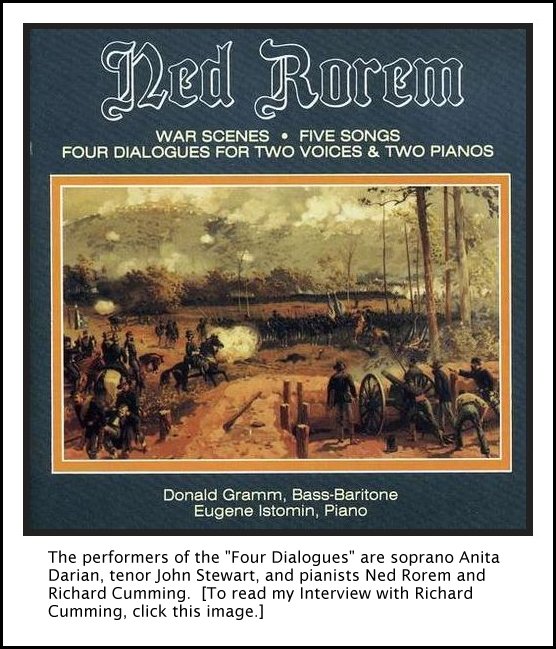 BD: Let me assure you that your voice sounds
marvelous in the theatre and on recordings.
BD: Let me assure you that your voice sounds
marvelous in the theatre and on recordings.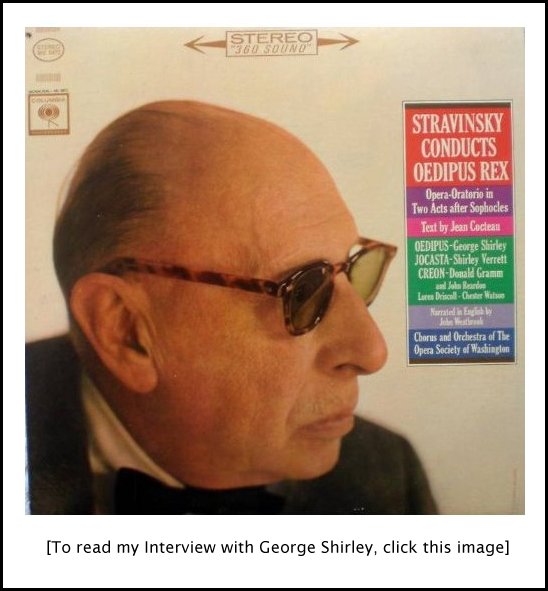 BD: Is Stravinsky grateful for the voice?
BD: Is Stravinsky grateful for the voice?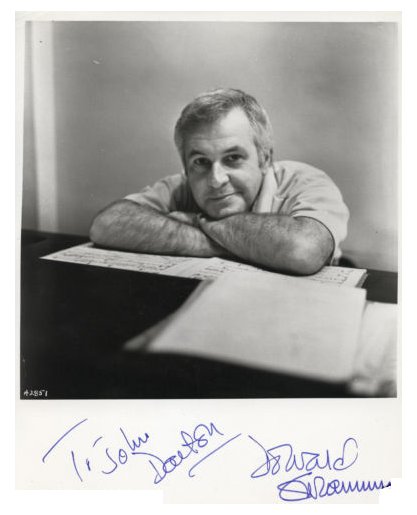 DG: Yes, I think you should know a role.
Then I look back at my own experience, and I realize I didn’t know a role.
When I went to the New York City Opera at 25 or 26, and I didn’t know any
roles. But then I didn’t audition for it. They came to me and
asked if I would sing in their opera company! I had to borrow scores
of Bohème and The Marriage of Figaro and Wozzeck to look at the roles of Colline
and the Count and Wozzeck. I covered Wozzeck but I couldn’t have sung
it then. I’d barely be able to sing it now. I’m not sure that
I would even want to, but in any event that was a different time when there
weren’t so many young singers. Now everybody is trained. All
of the young singers today are trained. Most of them have degrees,
and in all of those workshops at universities they learn everything in the
world.
DG: Yes, I think you should know a role.
Then I look back at my own experience, and I realize I didn’t know a role.
When I went to the New York City Opera at 25 or 26, and I didn’t know any
roles. But then I didn’t audition for it. They came to me and
asked if I would sing in their opera company! I had to borrow scores
of Bohème and The Marriage of Figaro and Wozzeck to look at the roles of Colline
and the Count and Wozzeck. I covered Wozzeck but I couldn’t have sung
it then. I’d barely be able to sing it now. I’m not sure that
I would even want to, but in any event that was a different time when there
weren’t so many young singers. Now everybody is trained. All
of the young singers today are trained. Most of them have degrees,
and in all of those workshops at universities they learn everything in the
world. 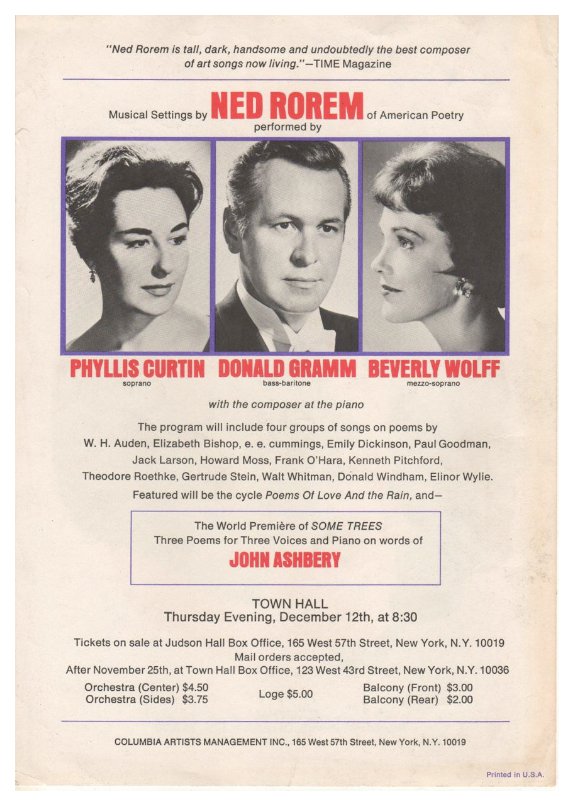 BD: So then do you over-compensate and make
it overly British?
BD: So then do you over-compensate and make
it overly British?© 1981 Bruce Duffie
This conversation was recorded in Chicago on December 17,1981. Appropriate portions were published in The Massenet Newsletter in July of 1985. Portions were broadcast on WNIB 1989, 1992 and 1997. An unedited copy of the audio was placed in the Archive of Contemporary Music at Northwestern University. This transcription was made in 2014, and posted on this website at that time. My thanks to British soprano Una Barry for her help in preparing this website presentation.
To see a full list (with links) of interviews which have been transcribed and posted on this website, click here.
Award - winning broadcaster Bruce Duffie was with WNIB, Classical 97 in Chicago from 1975 until its final moment as a classical station in February of 2001. His interviews have also appeared in various magazines and journals since 1980, and he now continues his broadcast series on WNUR-FM, as well as on Contemporary Classical Internet Radio.
You are invited to visit his website for more information about his work, including selected transcripts of other interviews, plus a full list of his guests. He would also like to call your attention to the photos and information about his grandfather, who was a pioneer in the automotive field more than a century ago. You may also send him E-Mail with comments, questions and suggestions.